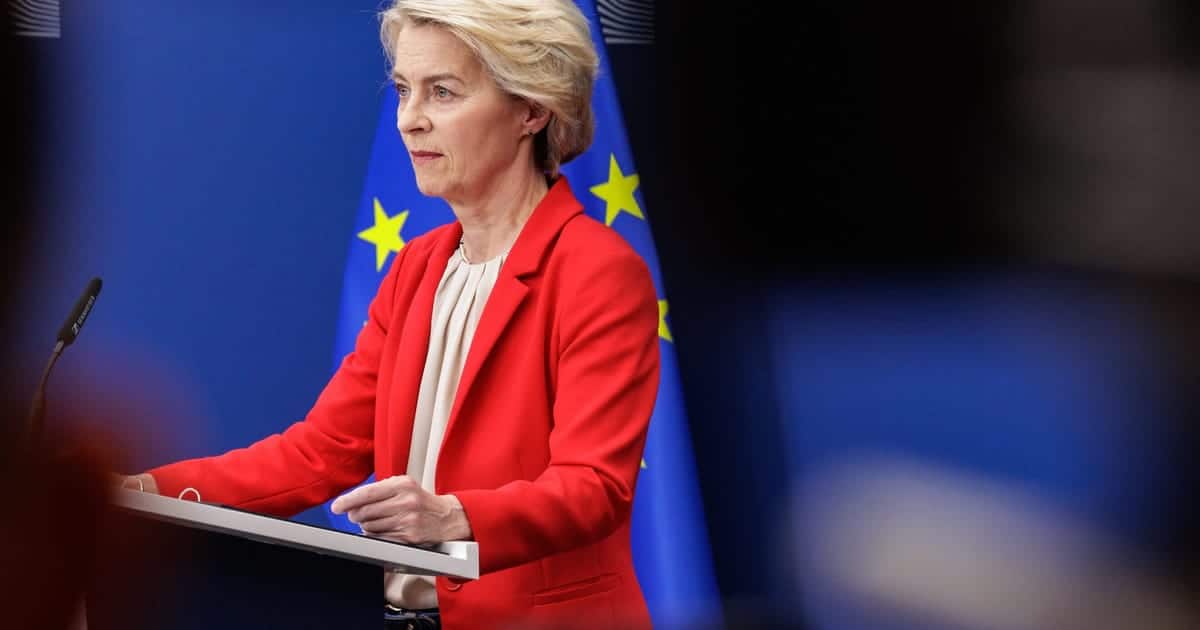EU Considers New Sanctions on Russian Banks and Oil Trade to Impact Russia’s Economy, Collaborating with US

In a bid to intensify economic pressure on Russia, the European Union is contemplating a new round of sanctions targeting Russian banks and the oil trade. This proposed set of measures, which would mark the 19th round of sanctions since the onset of the Russia-Ukraine conflict in 2022, aims to compel President Vladimir Putin to cease hostilities. The sanctions may include restrictions on Russian payment systems, cryptocurrency exchanges, and further limitations on oil transactions. EU officials are expected to meet with U.S. representatives this week to discuss coordinated actions.
U.S. and EU Collaboration on Sanctions
U.S. Treasury Secretary Scott Bessent emphasized the importance of European cooperation in increasing pressure on Russia. During a recent appearance on NBC’s Meet the Press, he stated, “We are prepared to increase pressure on Russia, but we need our partners in Europe to follow.” The U.S. and its European allies are currently evaluating additional sanctions and secondary tariffs aimed at exacerbating Russia’s economic challenges. The goal is to create conditions that might persuade Putin to engage in peace negotiations with Ukraine. Despite the ongoing conflict, U.S. President Donald Trump has not implemented direct sanctions against Russia, although he has raised tariffs on India due to its continued purchase of Russian oil.
While Western sanctions have significantly impacted Russia’s economy, the country has managed to adapt by sourcing restricted goods from nations like China and discovering new markets for its oil and gas, particularly in India. The U.S. is also considering sanctions against Russia’s covert oil tanker fleet and major energy companies, including Rosneft and Lukoil.
Details of the Proposed EU Sanctions
The European Union’s proposed sanctions are expected to enhance restrictions on unofficial Russian vessels and oil traders operating in third countries. This could involve prohibiting re-insurance for designated tankers, thereby complicating Russia’s ability to transport oil. The EU is also contemplating stricter measures against major Russian oil firms, potentially eliminating existing exemptions for companies like Rosneft. Furthermore, the EU may expand export prohibitions on military-industrial supplies and impose trade restrictions on international companies, including those from China, that provide materials to Russia.
Beijing has become a vital military supplier for Russia, particularly in bolstering its drone manufacturing capabilities used in attacks on Ukrainian cities. The EU is considering implementing its “anti-circumvention tool” against Kazakhstan for the first time. This would prevent Kazakhstan from importing specific machinery that EU trade data indicates is being redirected to Russia for weapons production. However, the implementation of this tool requires substantial evidence and unanimous support from EU member states.
Future Steps and Considerations
The proposed sanctions package is still subject to discussion among EU member countries, with potential modifications anticipated in the coming days and weeks. Additional measures under consideration include visa restrictions, limitations on ports handling sanctioned vessels, and controls on military-related services, including artificial intelligence applications. EU ambassadors received a briefing on the proposed sanctions over the weekend, and formal proposals are expected to be presented soon.
As the EU and U.S. work together to formulate these sanctions, the focus remains on increasing economic pressure on Russia to encourage a resolution to the ongoing conflict in Ukraine. The effectiveness of these measures will depend on the cooperation of EU member states and the ability to enforce the sanctions against Russia’s adaptive strategies in the face of international pressure.
Observer Voice is the one stop site for National, International news, Sports, Editor’s Choice, Art/culture contents, Quotes and much more. We also cover historical contents. Historical contents includes World History, Indian History, and what happened today. The website also covers Entertainment across the India and World.

